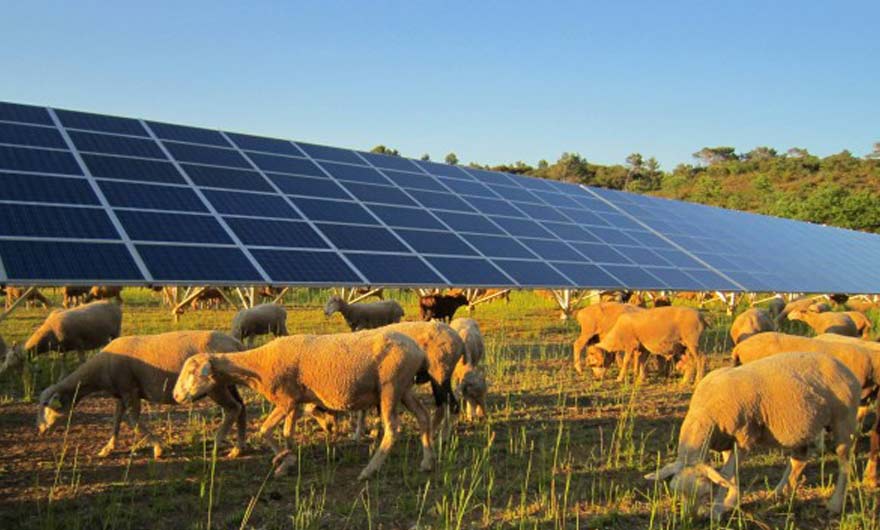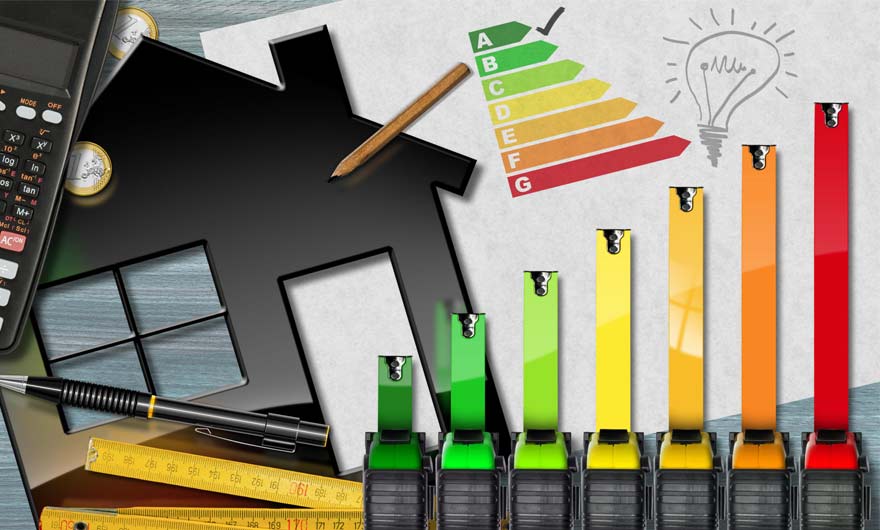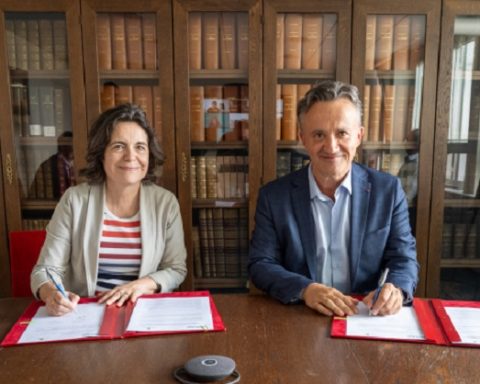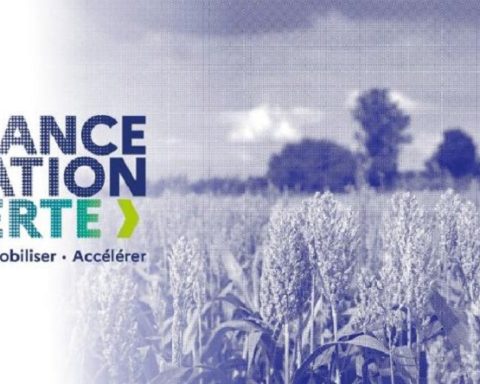L’Ademe dévoile une étude inédite qui conforte la place de l’agriculture au cœur du développement des énergies renouvelables. L’agriculture produit aujourd’hui autant d’énergies renouvelables qu’elle consomme d’énergies conventionnelles. Les énergies renouvelables sont aussi une source importante de revenus pour les agriculteurs, pouvant dans certains cas générer jusqu’à 15000€ annuels de revenus complémentaires.
Pour Nicolas Hulot, Ministre d’Etat, Ministre de la Transition Ecologique et Solidaire « Cette étude prouve une nouvelle fois que la transition énergétique est une réalité et une opportunité pour les agriculteurs. Les énergies renouvelables, c’est de l’emploi dans les territoires, c’est un revenu complémentaire pour les agriculteurs, c’est un plus pour la planète. Avec la nouvelle programmation pluriannuelle de l’énergie, nous allons encore accélérer et faire en sorte que chaque agriculteur qui le souhaite puisse s’engager pour le solaire, l’éolien, ou le biogaz ».
Le secteur agricole, un important producteur d’énergies renouvelables
En 2015, le monde agricole a contribué à la production de 20% des EnR nationales. Avec 4,5 Millions de Tonnes Equivalent Pétrole (Mtep), les exploitations agricoles participent autant à la production d’EnR qu’elles consomment d’énergie non renouvelable.
Cette contribution des exploitations agricoles à la transition énergétique prend plusieurs formes :
• L’autoconsommation de chaleur et d’électricité pour réduire la facture énergétique de l’exploitation (géothermie, solaire thermique, photovoltaïque, méthanisation) ;
• La production et la vente de biomasse pour la production d’énergies renouvelables (cultures pour les biocarburants et la méthanisation, bois pour la chaleur) ;
• La vente d’électricité ou gaz directement sur les réseaux (photovoltaïque, méthanisation) ;
• La mise à disposition de surface pour les installations de panneaux solaires ou d’éoliennes.
Selon les estimations de l’étude, en 2015 plus de 50 000 exploitations agricoles (soit 15% des exploitations) participent déjà à la production d’EnR de manière significative. L’étude estime que cette contribution pourrait être multipliée par 2 à l’horizon 2030 et pourrait atteindre 15,8 Mtep en 2050, grâce au développement de la méthanisation, du photovoltaïque et de l’éolien notamment.
Les EnR : un plus pour le revenu des agriculteurs
Selon l’étude, en 2015 la contribution du secteur agricole à la production d’EnR représente un chiffre d’affaire d’1,4 milliard d’euros soit l’équivalent de 2% du chiffre d’affaires de l’agriculture française.
Ce chiffre d’affaires est essentiellement porté par les biocarburants, pour 1 milliard d’euros, suivi du photovoltaïque, pour 109 millions d’euros, de la méthanisation et de la biomasse chaleur, pour respectivement 88 et 85 millions d’euros et, dans une moindre mesure, 34 M€ pour la mise à disposition d’espace permettant l’installation d’éoliennes.
Ces chiffres, encore limités au regard du potentiel de l’ensemble du secteur agricole, génèrent néanmoins un impact significatif pour les agriculteurs engagés dans ces projets : le développement des EnR contribue à diversifier leur revenu, pour des montants pouvant aller de quelques milliers d’euros de réduction de leur facture énergétique à plus de 15 000 € de revenus complémentaires. Ces chiffres sont à mettre en perspective avec le revenu agricole moyen en 2015, évalué à 25 400 € pour l’ensemble des filières.
L’étude a identifié plus d’une cinquantaine d’opportunités offertes aux agriculteurs selon leur filière, les caractéristiques de leur exploitation, leurs possibilités d’investissements financiers ou leur volonté d’implication dans la gouvernance des projets.
Une animation locale pour des projets intégrés aux exploitations agricoles et aux territoires
Les EnR constituent une nouvelle filière en plein développement pour le monde agricole. Elles représentent une opportunité économique qu’il faut nécessairement organiser et accompagner. Compte tenu des perspectives, l’étude recommande le renforcement d’une animation locale axée sur la fourniture de conseils techniques, administratifs et financiers, ainsi que d’un accompagnement au montage de projets. Les objectifs sont d’accélérer la diffusion des EnR et de permettre à l’agriculture d’être un véritable acteur de la transition énergétique.
De plus, les projets d’EnR collectifs intégrés aux territoires contribuent à l’appropriation des EnR par les citoyens ce qui favorise leur déploiement.
Chaque année, l’ADEME publie une enquête sur les représentations sociales du changement climatique. En 2017, un focus sur les agriculteurs révèle l’importance de ces enjeux pour la profession :
• 89% des agriculteurs interrogés estiment que le changement climatique a un impact sur leur activité agricole
• 84% pensent devoir faire évoluer leur activité agricole
• 74% estiment pouvoir réduire les émissions de gaz à effet de serre générées par leur exploitation
• 49% envisagent des projets EnR
• Etude « Agriculture et EnR : contributions et opportunités pour les exploitations agricoles » de l’ADEME
S’abonner
Connexion
0 Commentaires
Inline Feedbacks
View all comments












